When MPs get together the first thing they do is pray. You could call it an admonition to MPs about how to best conduct their roles. Roughly, it’s along the lines of ‘god help us all’ and ‘how do I do this MP thing anyway?’.
It goes like this:
“Almighty God, We give thanks for the blessings which have been bestowed on us. Laying aside all personal interests, we acknowledge the Queen and pray for guidance in our deliberations, that we may conduct the affairs of this House with wisdom, justice, mercy and humility, for the public welfare and peace of New Zealand. Amen.”
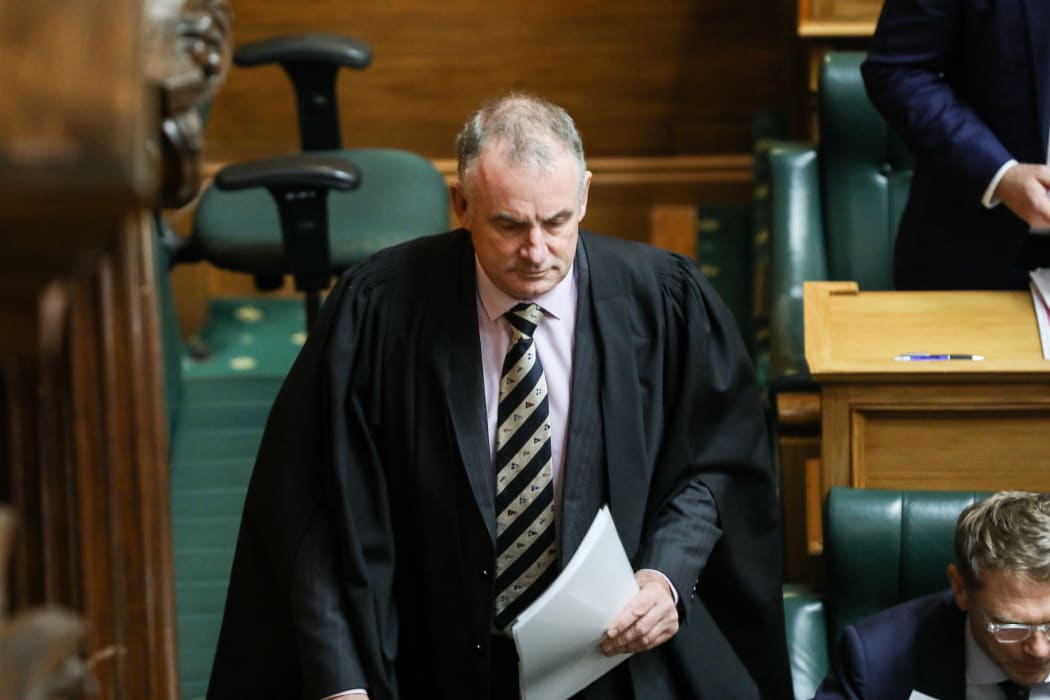
The first thing the Speaker does after arriving in the chamber is make a plea for help. Photo: VNP / Phil Smith
There’s no rule that a prayer should occur in Parliament at all. It’s just a convention, something you do, because you always have. So there’s no mandated version of how it should go either, and most Speakers have tweaked it a little.
At the beginning of this term the tweak made it more religiously inclusive by removing the only specifically Christian reference (the previous version ended “through Jesus Christ our Lord, amen”).
There are currently two petitions before Parliament seeking to change that. One petition seeks to mandate the re-inclusion of one the Christian trinity. That petition hasn’t been considered as yet.
The other petition seeks to remove God entirely - from Parliament’s prayer, and also from oaths and from the National Anthem, in order to be more inclusive. The intent is to make the admonition still yet more inclusive (to those not theist).
That petition is currently under consideration.
This week the select committee considering John Tresize’s petition asked Parliament’s Speaker Trevor Mallard along for comment.
The Speaker said the feedback he had sought and received on the old prayer split three ways, “about a third wanting change to no religion at all, a group in the middle who wanted it to be [inclusive] and a group for the status quo which was seen by the other two thirds as being exclusive”.
He said that his experience illustrated that “it is not possible to build a consensus in this area.”
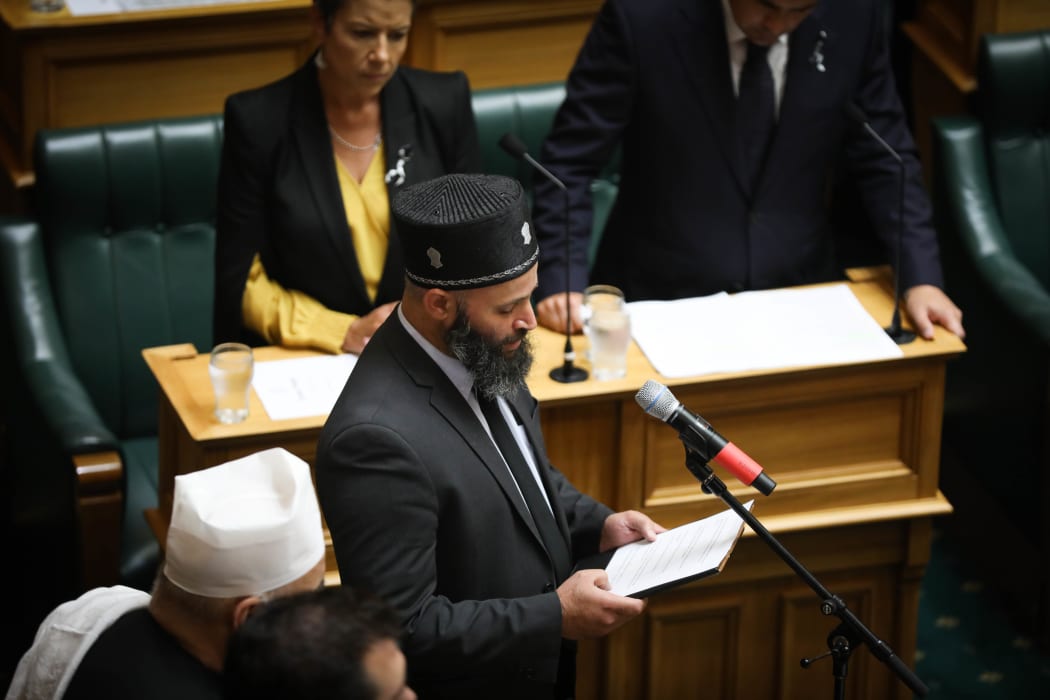
Tahir Nawaz translates a prayer delivered by Imam Nizam ul haq Thanvi from Arabic to English. Photo: VNP / Daniela Maoate-Cox
That argument might be supported by a glance at the written submission of the petitioner, John Trezise, who argued that it had became apparent after the Christchurch attacks (and outrage at an Imam opening Parliament with an islamic prayer), that some demanded that New Zealand was a Christian country “and regard it as culturally pre-eminent and to some extent state-sanctioned”.
He quoted Bishop Brian Tamaki who had said that the Prime Minister, in seeking to show support to the Islamic community was to
“...join and promote a Violent, murdering movement that will not stop in their drive to Destroy western and christian civilization. We allowed The essence of that religion to be declared and prayed from our Parliament over our Nation. Its Time for NZ to Wake Up and sort Our National Identity and Declare our Religious Heritage is Christianity...not Buddist, Islam, Hindu, Atheism or any other!”
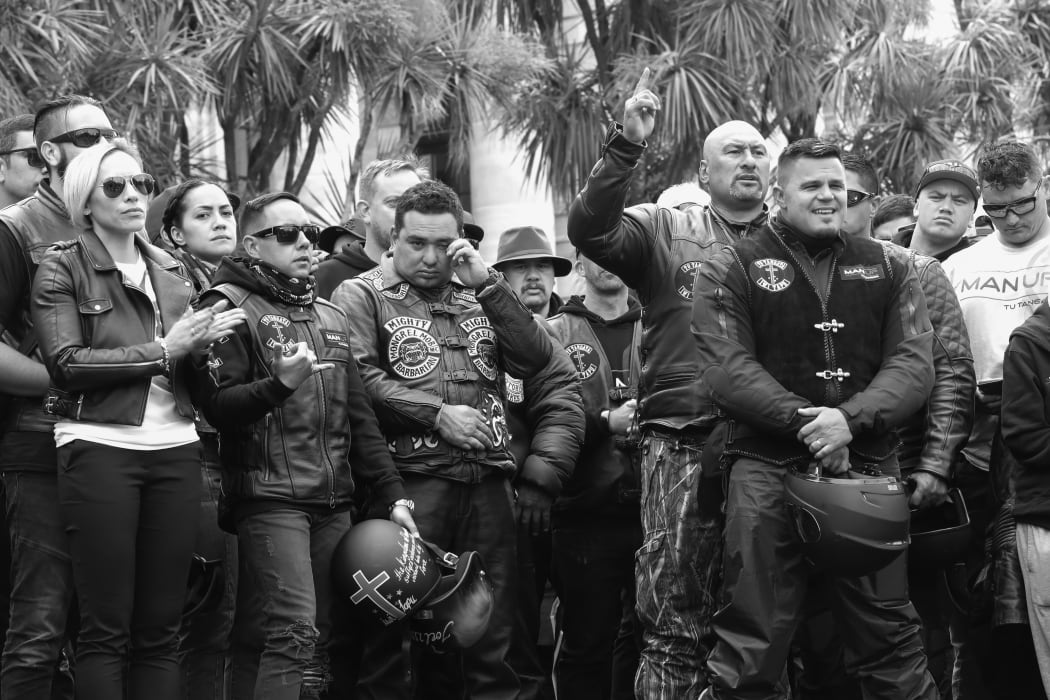
Members of Bishop Brian Tamaki's Tu Tangata group listen to him speak outside Parliament Photo: © VNP / Phil Smith
John Trezise’s response was that Parliament should make it plain that
“New Zealand is not a Christian country, but a country for Christians, and equally a country for Jews, Muslims, Buddhists, and Hindus, for animists, agnostics, sceptics, and rationalists; a country for all people of goodwill who are its lawful denizens. ...The danger of the New Zealand Parliament continuing with a religious prayer, and of oaths and declarations and national anthems continuing to have religious expression, is that they give implicit sanction to the notion that a Christian, or more broadly a believer in a supreme supernatural being, is somehow a more authentic New Zealander than one who claims no such belief.”
The quotes above from Mr Tamaki and Mr Tresize illustrate the extreme breadth of opinion. Given that, the Speaker indicated that he felt that his new approach was a reasonable middle ground.
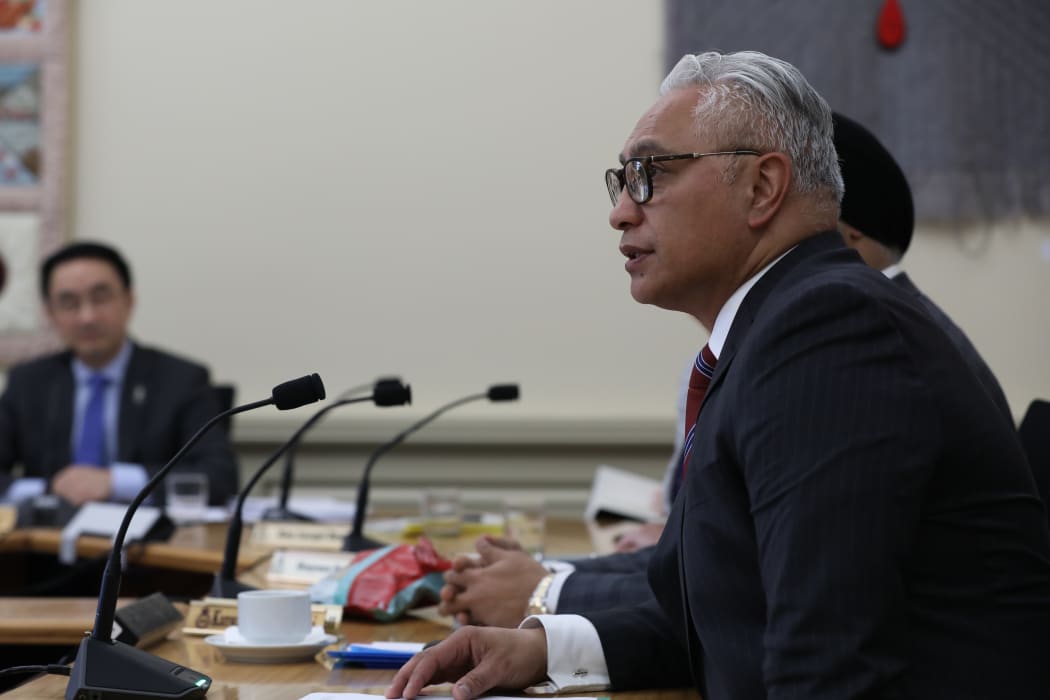
National MP Alfred Ngaro questioning the Speaker in committee Photo: © VNP / Phil Smith
National MP Alfred Ngaro wanted to know what the Speaker thought was the function of the prayer in Parliament.
“I see it as an exercise as bring us together to think about why we’re there. And people will think about that, depending on their own set of beliefs in different ways,” said Mr Mallard.
A number of the MPs present took the chance to congratulate the Speaker on another change he has made to the Prayer - which is inviting various MPs to read a translated version of it during language weeks. Languages have included a wide range of pacific languages as well as Mandarin and Hindi.
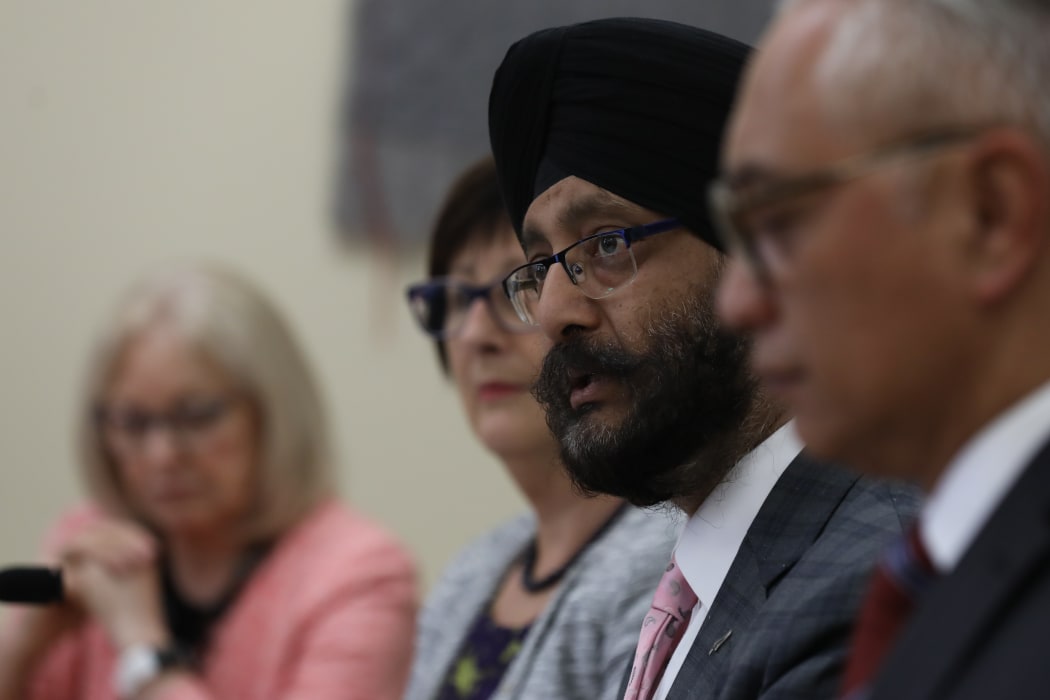
National MP Kanwaljit Singh Bakshi questoning Speaker Mallard in select committee Photo: © VNP / Phil Smith
Kanwaljit Singh Bakshi said that his Hindi version of the prayer gained wide media attention in India. The Speaker agreed that the multi-language prayers had gone well and he felt it was a useful change.
“We have good news and bad news coming out of the place, but it makes people internationally think we are a bit different and a bit more welcoming.”


